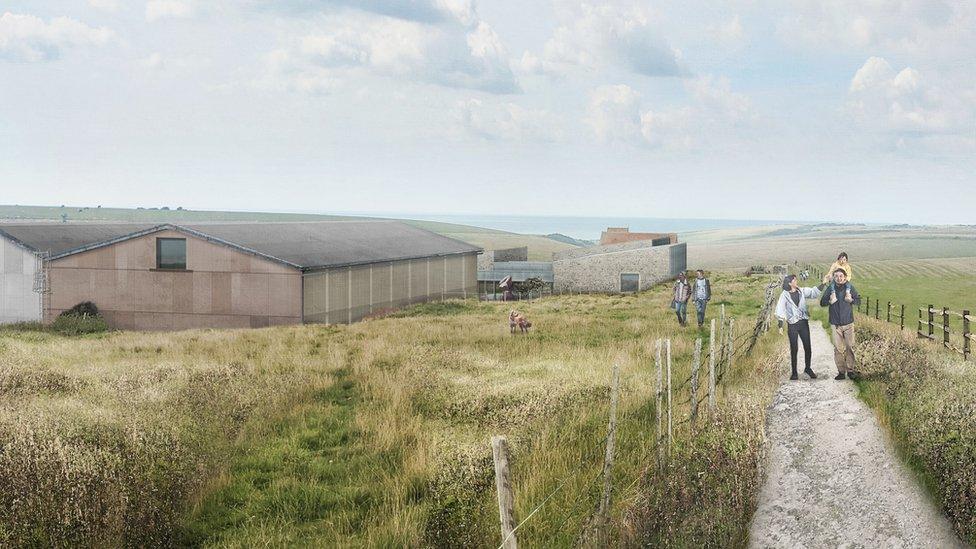South Downs investment scheme to 'boost biodiversity'
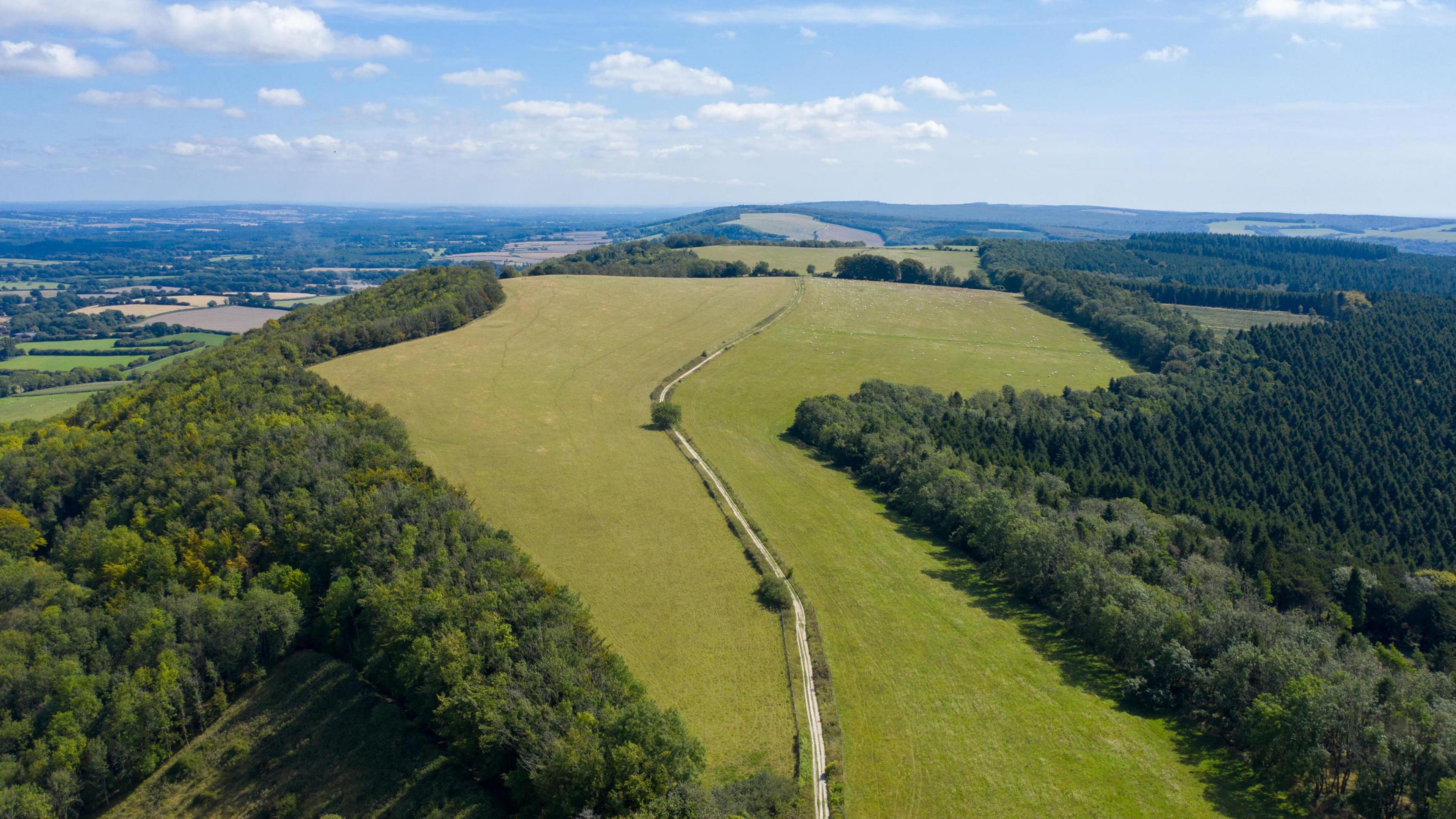
- Published
South Downs National Park will be the first in the country to offer businesses an investment scheme in a bid to make its land more biodiverse.
The park authority hopes to improve its variety of animals and plants through green finance investment.
It has earmarked 500 hectares of farm and country estate land across the national park, which stretches from Winchester in Hampshire to Eastbourne in East Sussex.
Tim Slaney, interim chief executive for South Downs National Park Authority (SDNPA), said the scheme would fund “high-ethic, effective nature recovery”.
Mr Slaney explained: "We have a real opportunity in the UK to turn the tide on nature depletion, as well as tackle the climate crisis through nature-based solutions, but we've got to act quickly and decisively."
Mr Slaney said the hope was South Downs would be a "driving force" behind nature recovery. , external
He added: "There is now a real appetite across the corporate sector to demonstrate first-class environmental integrity, meet national targets and invest in the planet for future generations and that's exactly what voluntary biodiversity credits can deliver.
"National parks have to seize this moment and capitalise on this tremendous opportunity to enable nature to bounce back."
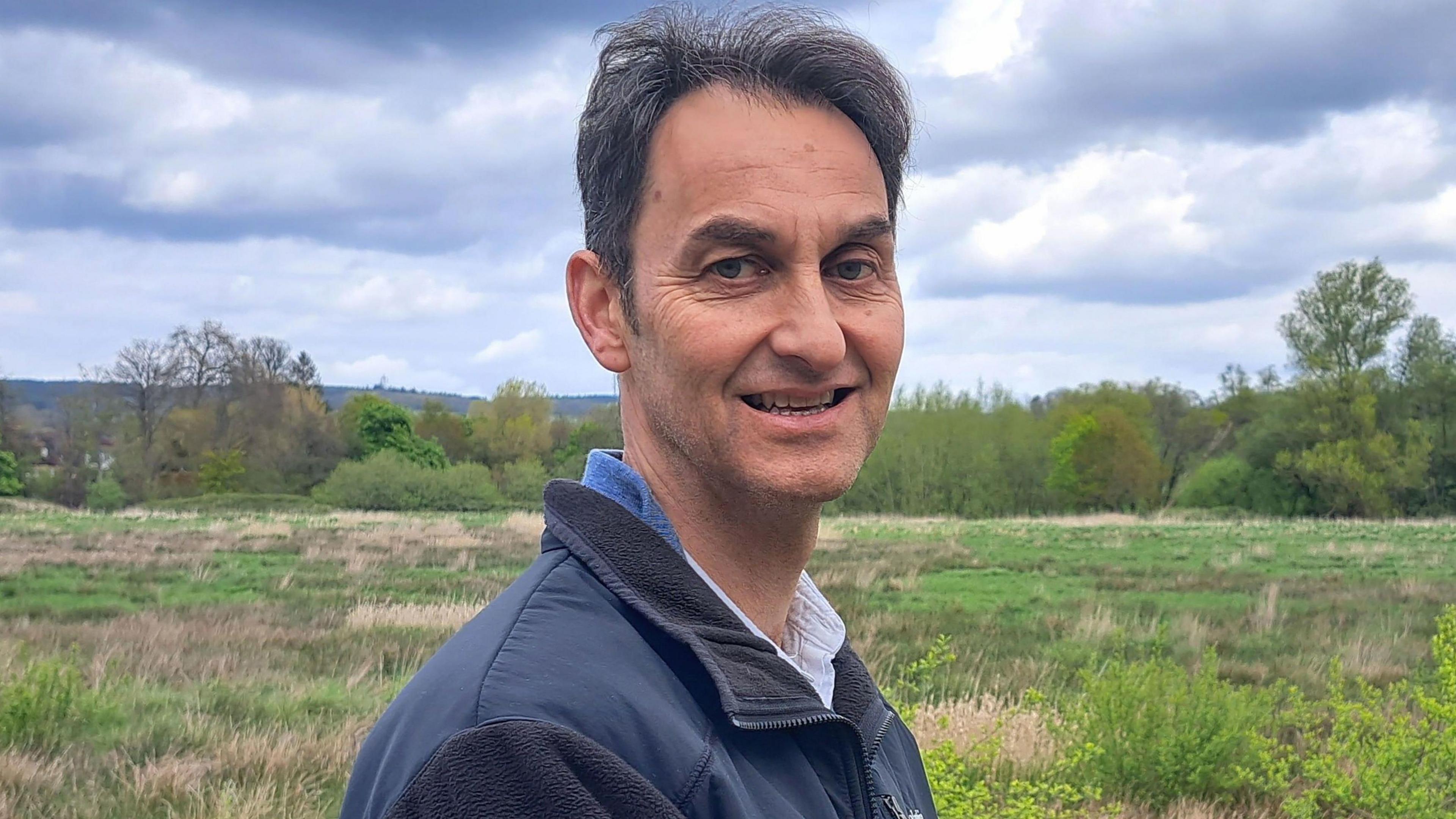
Tim Slaney, interim chief executive at the SDNPA, said the scheme was an opportunity to tackle the climate crisis
The green credits scheme is part of the park authority's ReNature campaign, which aims to create 13,000 acres of new land for habitats to form.
The authority is hoping to make 33% of the park managed solely for nature by 2030, with the remaining 67% considered nature-friendly.
Mr Slaney said the campaign and investment schemes showed a "growing desire" to diversify the land and farming sectors.
He added: "Both sectors can work harmoniously together and national parks can be the facilitator."
The park authority plans to work with landowners to deliver "high-quality, nature-friendly food production on their best farming land".
Mr Slaney said the more "marginal" land would then be turned into biodiverse areas for nature to thrive.
He continued: "This is just the start of this journey and we're excited about what can be achieved for nature in the next few years."
The park authority is now working with tech company Earthly to help find investors and monitor the scheme.
Follow BBC South on Facebook, external, X (Twitter), external, or Instagram, external. Send your story ideas to south.newsonline@bbc.co.uk, external or via WhatsApp on 0808 100 2240, external.
Related topics
More from Hampshire & Isle of Wight's Big Pictures
- Published24 April 2024
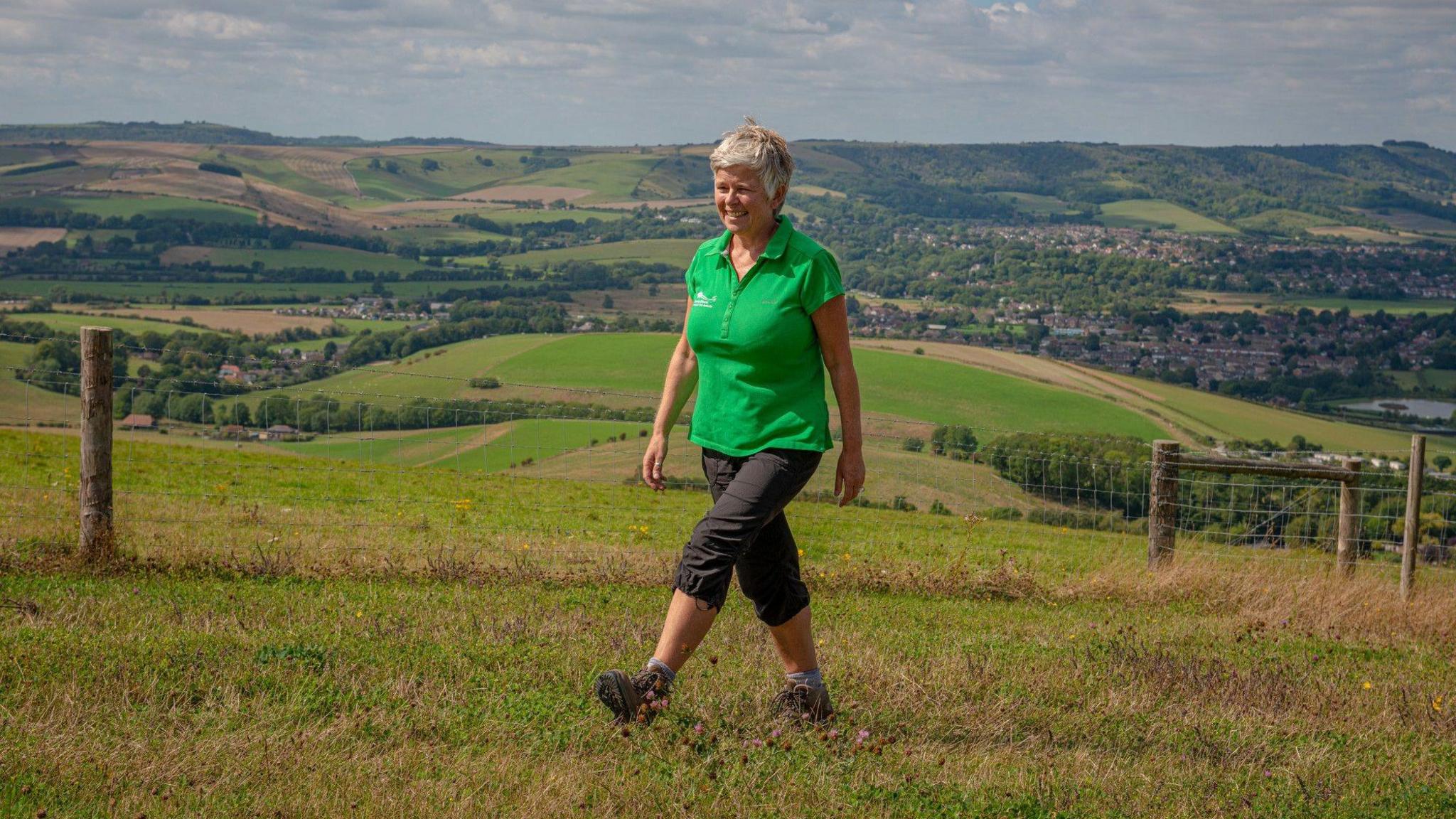
- Published9 August 2023
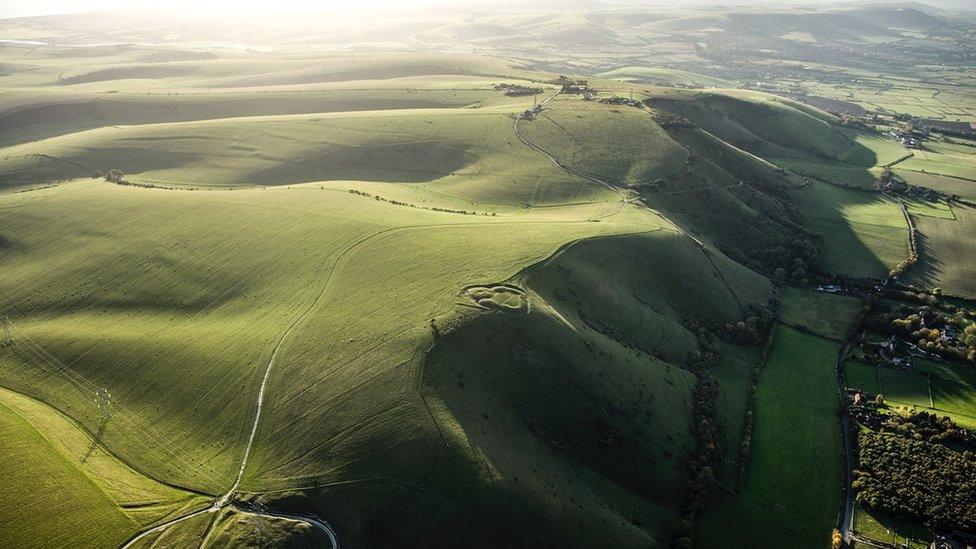
- Published2 February 2023
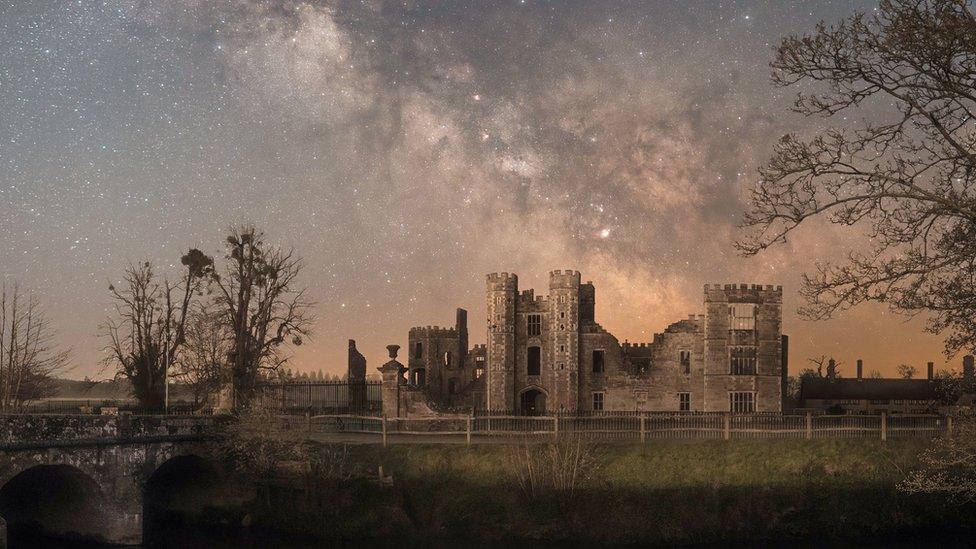
- Published5 July 2021
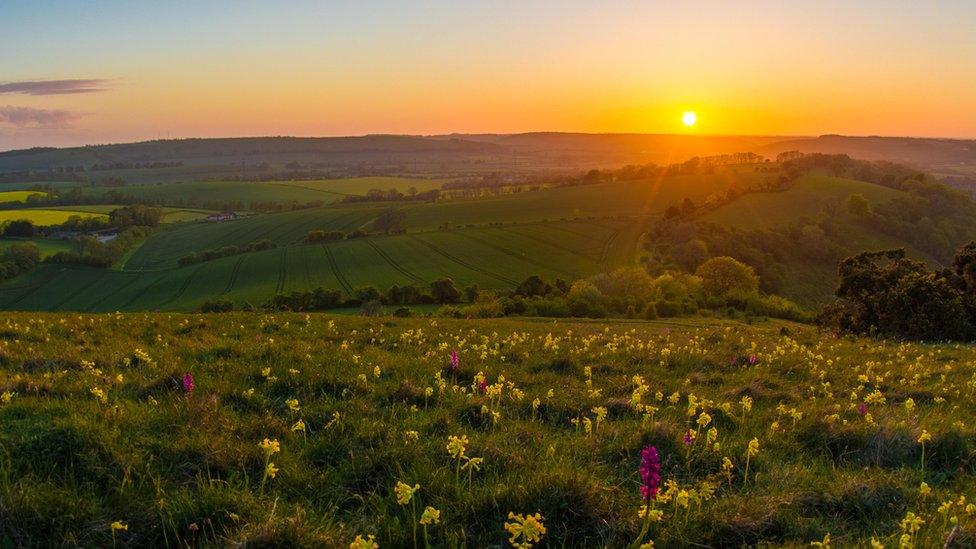
- Published15 February 2024
